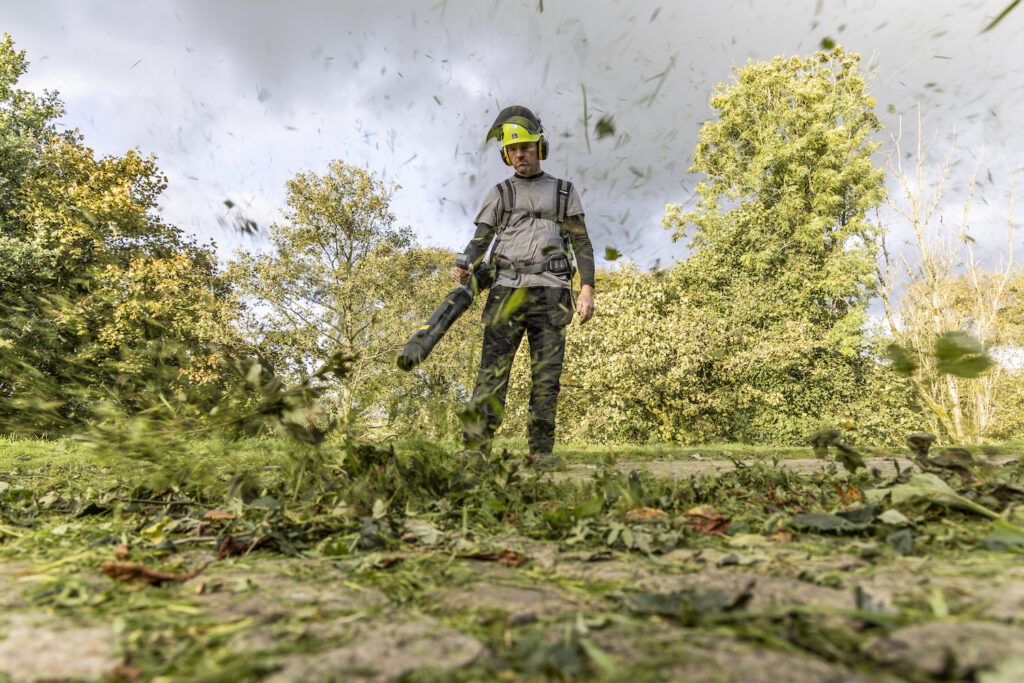Gardening professionals may be putting themselves and their customers at risk due to excessive noise pollution created by their equipment, new research has found.
The research conducted by EGO Power Plus as part of its Challenge 2025 initiative has found that noise pollution generated by petrol-powered outdoor equipment, notably those used in gardens, heavily exceed the daily exposure limit of 87dB(A) set by the UK Government’s Health and Safety Executive (HSE).
The independent tests led by EGO and Earlsmere, a leading vibration and noise testing company, compared noise levels emitted by both petrol and battery-powered rotary mowers; hedge trimmers; grass trimmers; leaf blowers and chainsaws, and found that the petrol tools were up to three times louder than their electric counterparts. In fact, of all the tools tested, four petrol-powered tools exceeded the daily noise exposure limit of 87dB(A), with two generating noise levels of more than 100dB(A). Meanwhile, two battery-powered tools operated below or within the recognised limits.
Decibels are measured logarithmically. This means that decibel intensity increases by units of 10, so each increase is 10 times the lower figure. Therefore, 20 dB is ten times the intensity of 10 dB, and 30 dB is 100 times as intense as 10 dB. As a rough guide, an increase of 3dB doubles the loudness.
Emma Gayler, Ambassador for Challenge 2025 said: “Our latest research is clear evidence of the potential damage petrol-powered outdoor tools could be having on people’s health and wellbeing.
“Many gardening professionals are still working with petrol-powered tools for hours upon hours every day, and without the correct personal protective equipment (PPE) to help reduce the impact of the noise levels these tools generate or switching to a quieter battery alternative, many could be doing more damage than they realise – not only to themselves but their colleagues and customers too.”
Other reports have found that in some cases, noise pollution can be linked to cardiovascular troubles, cognitive impairment and can even cause mental health problems such as stress, anxiety and depression.
Recent findings published by the House of Lords Science and Technology Committee found that noise pollution increases the risk of stroke and heart disease while the equivalent of 130,000 healthy life years are lost from noise pollution each year in Britain. Furthermore, its report shows that more research is needed to update its understanding of exposure to noise pollution and states that the government accepts the need to regulate noise pollution but there are no specific targets to do so.
Emma continued: “Far more awareness needs to be made across the industry to help protect gardening professionals from the dangers of being exposed to high levels of noise pollution. A viable alternative exists with battery powered tools providing the same level of performance and up to 3 times quieter.
Furthermore, HSE advises employers to consider at an early stage how new or replacement machinery could reduce noise levels in the workplace – set a target to reduce the noise levels if possible. EGO’s recent testing shows the clear disparity between petrol and battery-powered outdoor equipment, with battery-powered tools offering a much quieter and safer alternative, helping to protect gardening professionals today and in generations to come.
EGO’s Challenge 2025 campaign was launched in 2020 to educate and empower domestic and professional outdoor power equipment users, urging them to switch from petrol-powered tools while highlighting the statistics the initiative has uncovered along the way.


